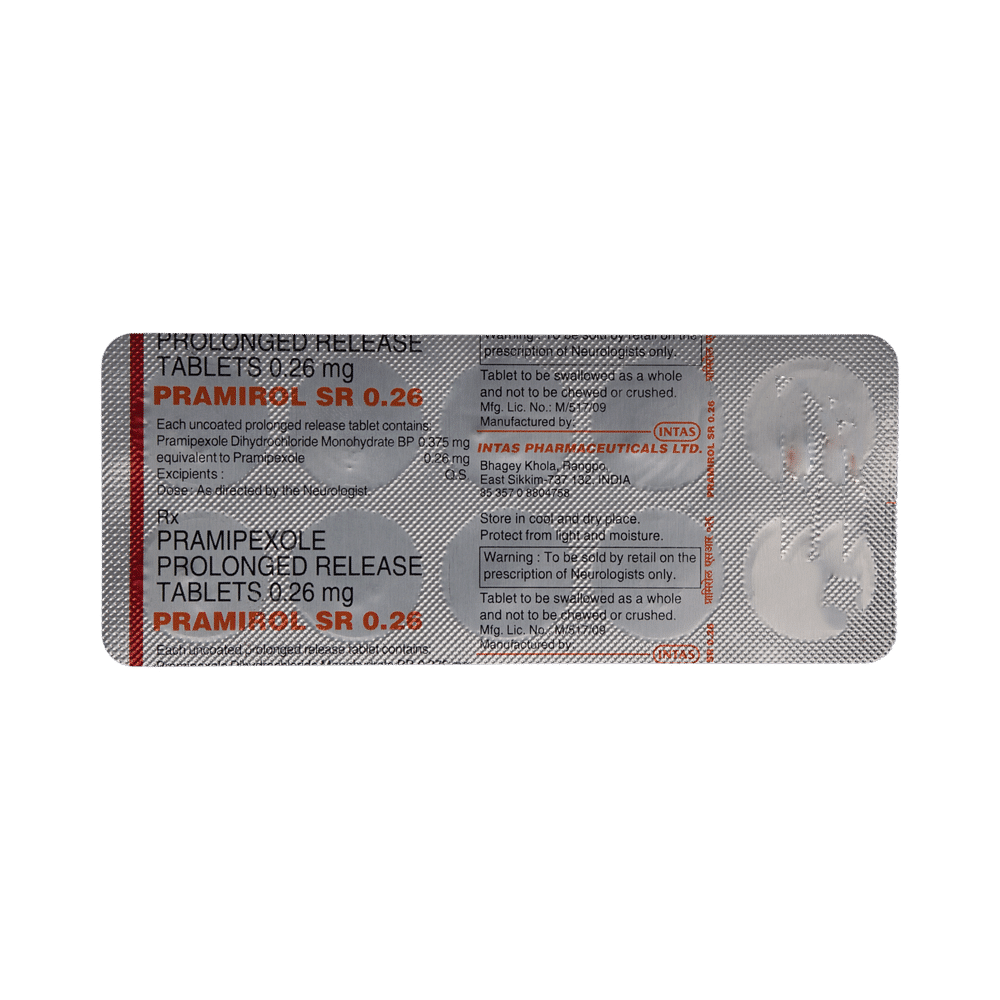
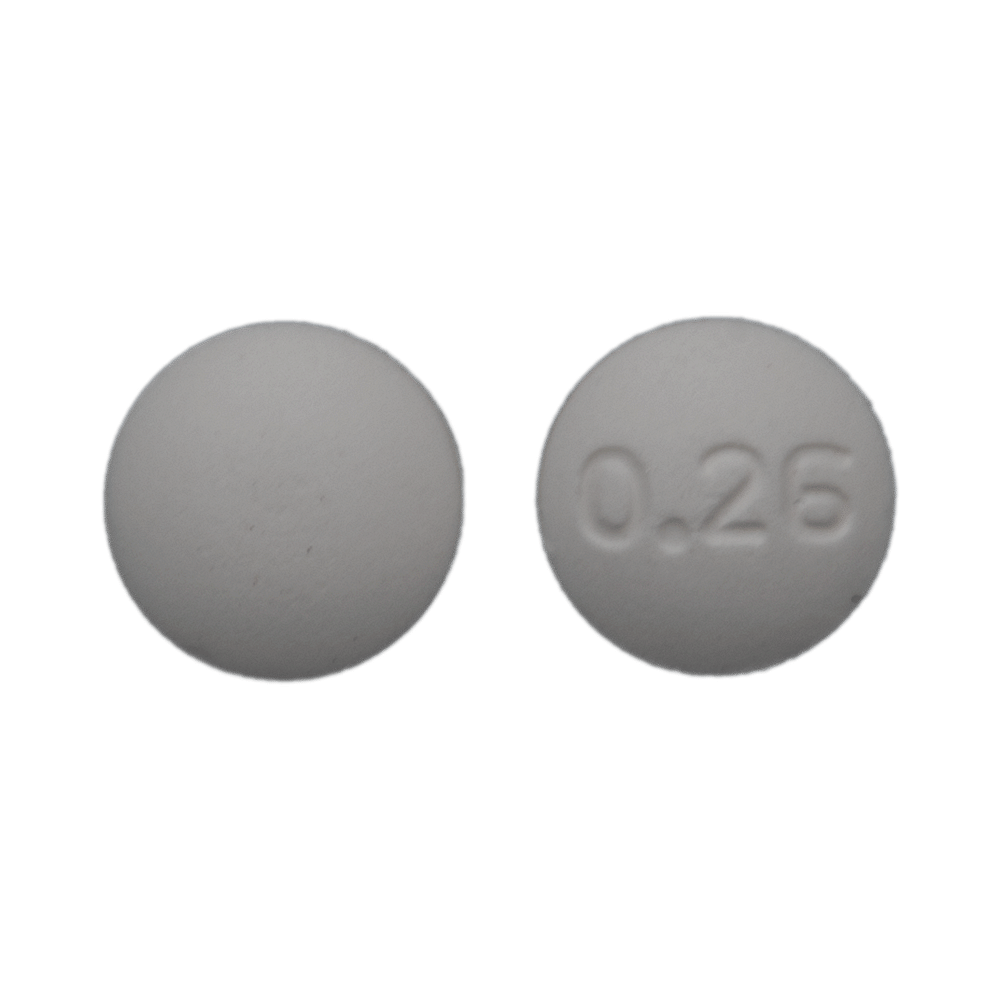
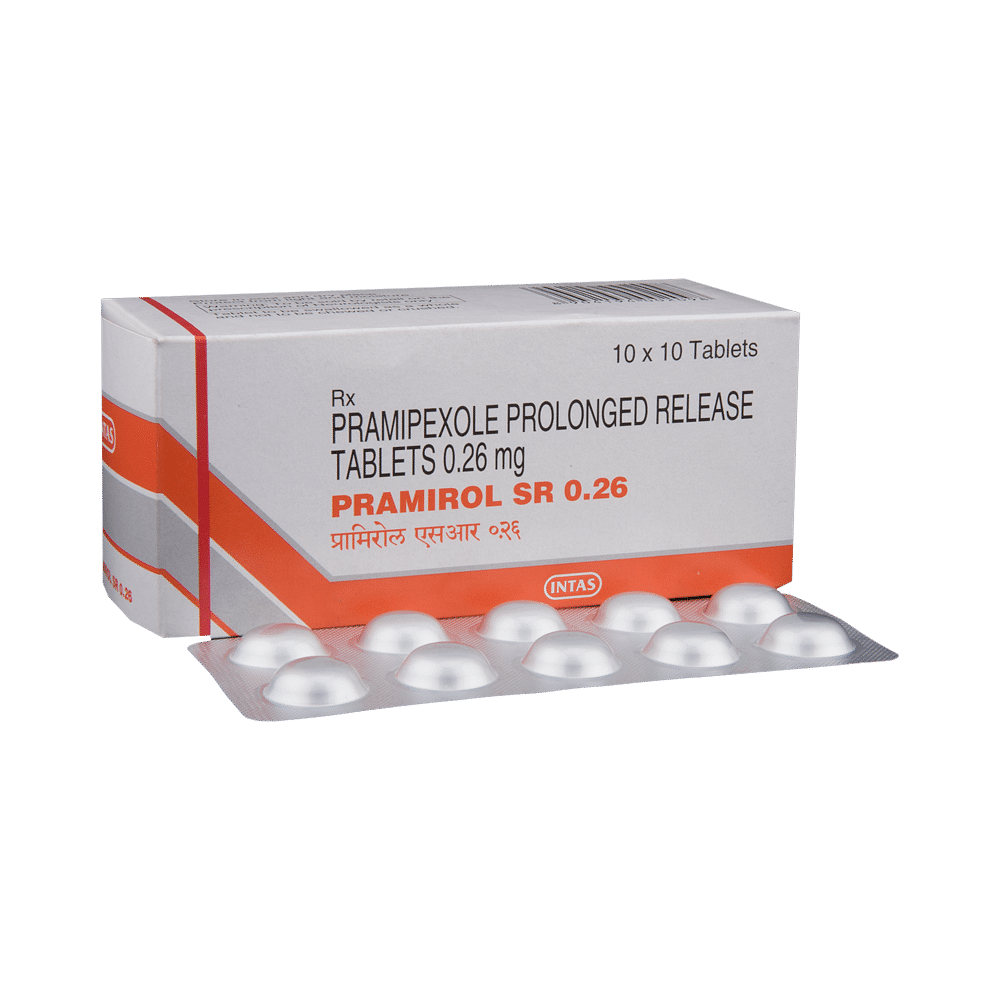
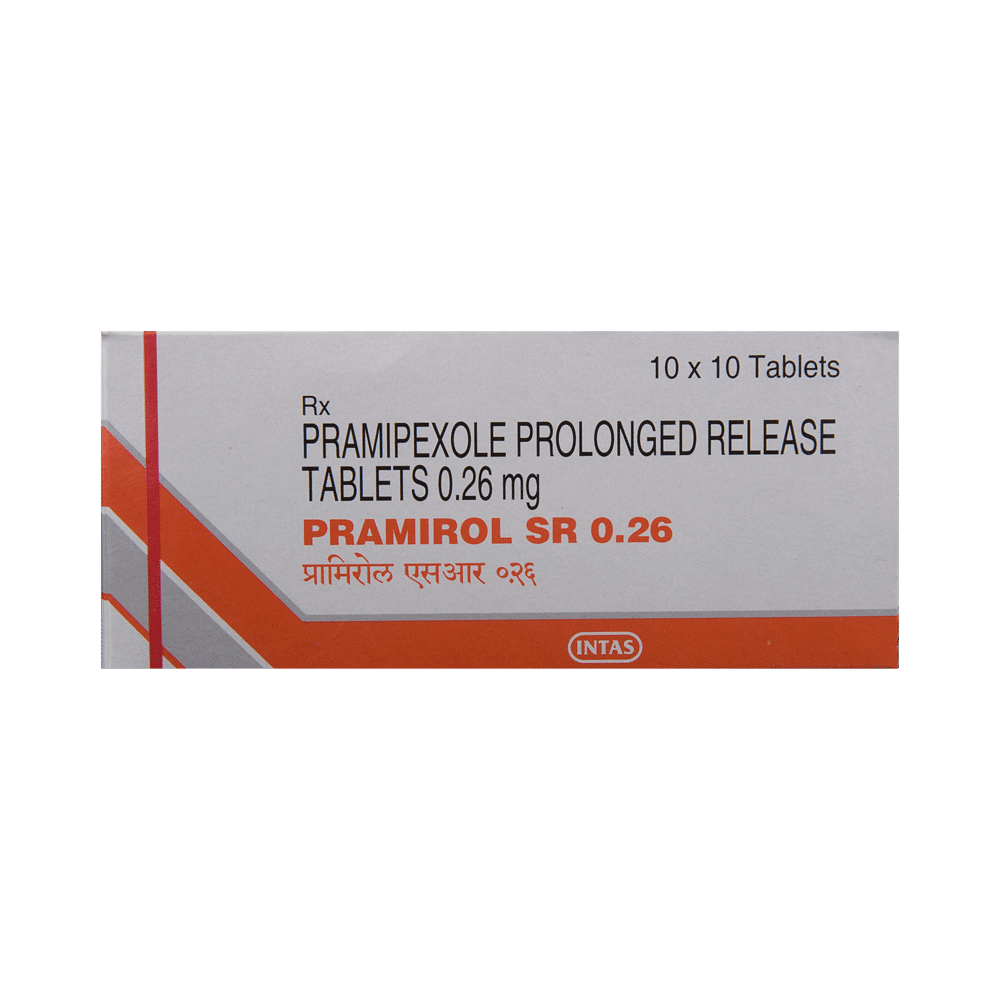
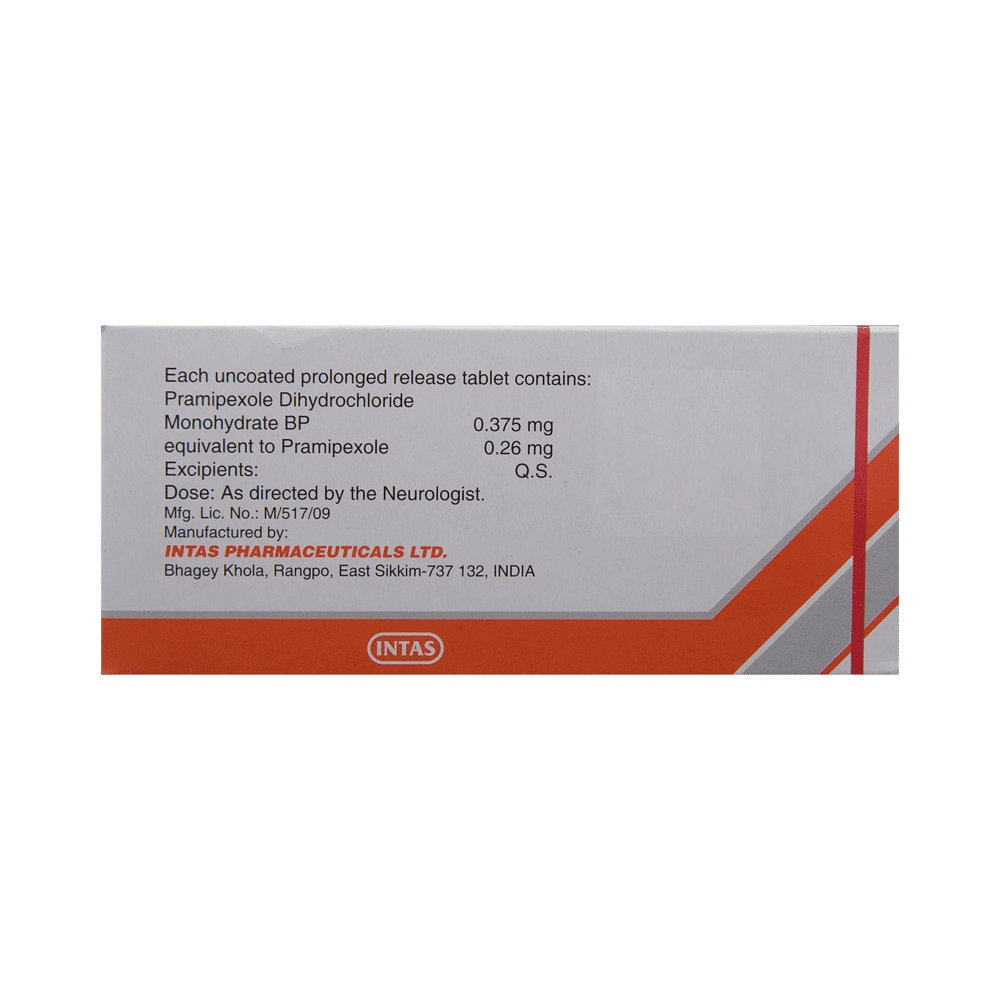
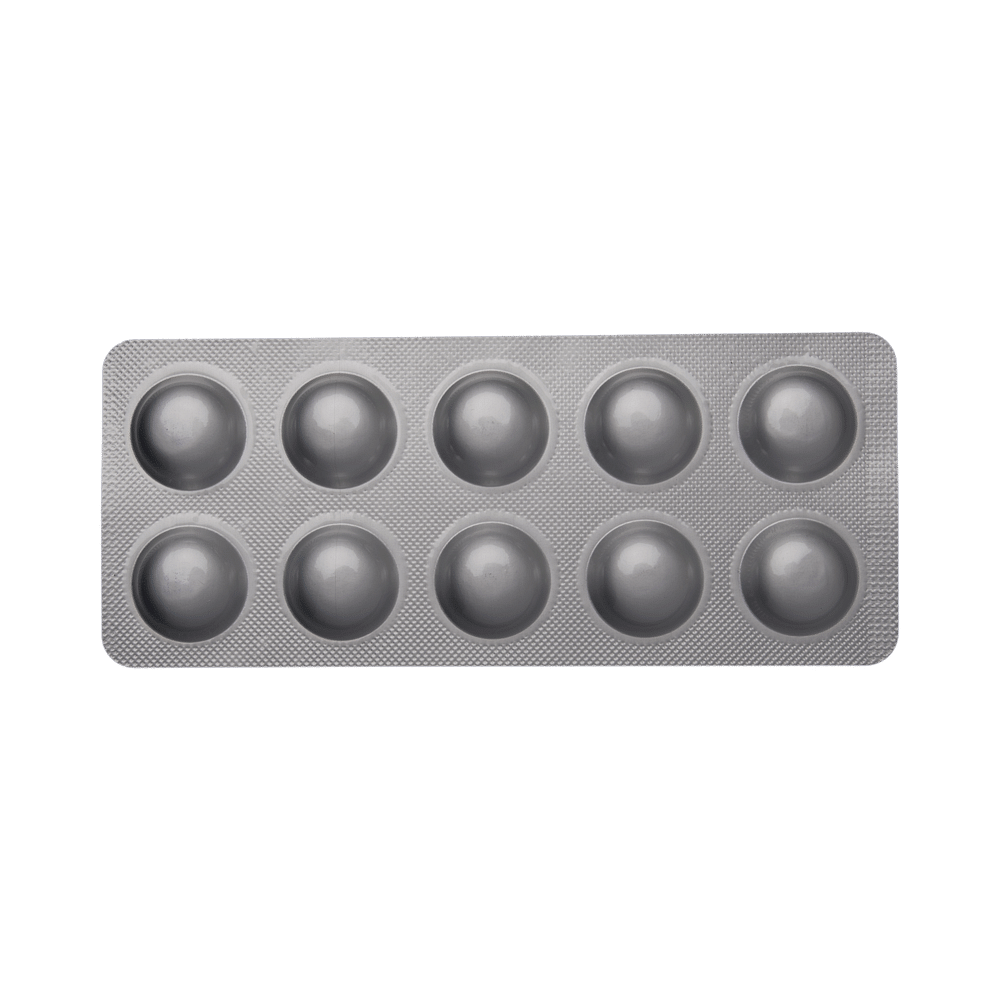
Pramirol SR 0.26 Tablet
Manufacturer
Intas Pharmaceuticals Ltd
Salt Composition
Pramipexole (0.26mg)
Key Information
Short Description
Pramirol SR 0.26 Tablet is used to treat Parkinson's disease and restless leg syndrome by slowing down body movements and helping to treat excessive shaking.
Dosage Form
Tablet PR
Introduction
Pramirol SR 0.26 Tablet should be taken with food. However, take it at the same time each day as this helps to maintain a consistent level of medicine in the body. Take this medicine in the dose and duration as advised by your doctor and if you have missed a dose, take it as soon as you remember it. You should never skip any doses and finish the full course of treatment even if you feel better. This medication must not be stopped suddenly without talking to your doctor.
Directions for Use
Use it as advised by your doctor or check the label for directions before use. Pramirol SR 0.26 Tablet is to be taken with food.
How it works
Pramirol SR 0.26 Tablet works by mimicking the action of dopamine, a chemical messenger that is needed to control movement in the brain.
Quick Tips
You have been prescribed Pramirol SR 0.26 Tablet to treat your symptoms of Parkinson's disease and/or restless leg syndrome. It can be taken with or without food. Taking it with food may reduce nausea. For restless leg syndrome, take this medicine 2 to 3 hours before bedtime. Avoid activities that require you to be alert such as driving a car until you know how this medication affects you. When you first start taking Pramirol SR 0.26 Tablet, it may cause sudden drop in your blood pressure when you change positions. To lower the chance of feeling dizzy or passing out, rise slowly if you have been sitting or lying down.
Frequently asked questions
Does Pramirol SR 0.26 Tablet cause weight gain?
A common side effect of Pramirol SR 0.26 Tablet is a decrease in body weight, which may be due to decreased appetite. Uncommonly, it can also lead to an increase in weight. However, if you have concerns about your weight, talk to your doctor or a nutritionist.
Does Pramirol SR 0.26 Tablet make you sleepy?
Yes, Pramirol SR 0.26 Tablet can cause sleepiness. You may also experience sudden episodes of falling asleep. If this occurs, restrict driving and using heavy machinery and inform your doctor.
How does Pramirol SR 0.26 Tablet work for restless legs?
Restless leg syndrome (RLS) is a condition that causes discomfort in the legs and a strong urge to move the legs, especially at night and when sitting or lying down. Pramirol SR 0.26 Tablet belongs to dopamine (neurotransmitter) agonist class of medicines. It acts by stimulating dopamine receptors in the brain, which is needed for controlling movement. Hence, it is used to improve RLS.
Is Pramirol SR 0.26 Tablet a muscle relaxant?
No, Pramirol SR 0.26 Tablet is not a muscle relaxant. It helps improve movement and muscle control in Parkinson’s disease. It belongs to the dopamine agonist class of medications.
Can I stop taking Pramirol SR 0.26 Tablet if my symptoms of Parkinson's disease have improved?
You should not stop Pramirol SR 0.26 Tablet without talking to your doctor. Sudden discontinuation may lead to neuroleptic malignant syndrome (NMS), a rare but serious condition that can cause muscle rigidity, fever, rapid heart rate, and other complications.
How should Pramirol SR 0.26 Tablet be taken?
Take Pramirol SR 0.26 Tablet as directed by your doctor. Your dose will depend on your condition. It is usually taken 2-3 hours before bedtime and swallowed whole with water. It can be taken with or without food, but taking it with food may help reduce the chances of nausea.
What are the serious side effects of Pramirol SR 0.26 Tablet?
Serious side effects of Pramirol SR 0.26 Tablet include hallucinations (seeing things or hearing voices that do not exist), confusion, aggressive behavior, agitation, abnormal thoughts, changes in vision, abnormal body movements, and uncontrollable motions. It may also cause uncontrolled tilting of the head forward when sitting, standing, or walking. Additionally, it may cause dark, red, or cola-colored urine, muscle tenderness, stiffness or aches, and muscle weakness. If you experience any of these side effects, contact your doctor immediately.
What are impulse control disorders caused by Pramirol SR 0.26 Tablet?
Pramirol SR 0.26 Tablet may cause impulse control disorders, which can lead to cravings or urges to behave in unusual ways. It may also make it difficult to resist impulses that could harm you or others, such as addictive gambling, excessive eating, or spending money. Along with this, Pramirol SR 0.26 Tablet may cause an abnormally high sex drive or preoccupation with increased sexual thoughts or feelings.


